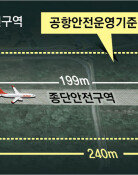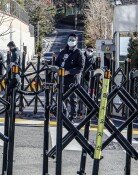COVID-19 emergency package should not be used to win over voters
COVID-19 emergency package should not be used to win over voters
Posted April. 08, 2020 07:37,
Updated April. 08, 2020 07:37
The Ministry of Economy and Finance reported the tax revenues for the first two months of the year at 46.8 trillion won, which is 2.4 trillion won lower than last year’s. This decline is attributed to a sharp fall in revenues from corporate taxes and VAT amid an economic slump. Meanwhile, the government’s spending has increased by 14.7 trillion won to 104 trillion won, putting a dent to the government finances. Excluding the social security obligations, the public fiscal balance recorded a deficit of 30.9 trillion won, which is a 14-trillion-won increase from last year.
The coronavirus outbreak had not yet hit South Korea in February. The problem lies in what will happen going forward. In the run up to the April 15 general elections, politicians are scrambling to offer cash to the public in response to the unprecedented economic challenges presented by the COVID-10 pandemic. As the Minsaeng Party and the Liberty Korea Party called for the 500,000-won emergency grant for everyone on Friday and Saturday, respectively, Lee Hae-chan, leader of the ruling Democratic Party of Korea, also argued on Monday that it should be given to every citizen regardless of their region or income. Democratic Party floor leader Lee In-young took it further on Tuesday by saying that he would consider suggesting an executive order. The South Korean presidential office Cheong Wa Dae indicated that it would follow the agreement made by the ruling and opposition parties, saying that the decision should be made by the National Assembly.
It has only been a week since the ruling party, the government and Cheong Wa Dae announced that they would provide up to one million won for the bottom 70 percent of the households. The Ministry of Economy and Finance had argued that it should be given only to the bottom 50 percent given the rapidly worsening balance, but the ruling party leadership pushed it up to 70 percent.
As the global recession continues, tax revenues are likely to decrease further. The fund for the cash grant can only be secured by increasing the government debt. To make things worse, the need for the third and fourth supplementary budgets is already being discussed. The government is expected to issue 69-trillion-won deficit bonds this year. At this rate, the national debt will snowball to 815.5 trillion won, taking up 41.2 percent of the GDP. Meanwhile, experts voice their concerns that the national credit rating might be downgraded.
The government will inevitably have to provide economic support to help the public through this unprecedented time and recover the economy. A large number of funds will be needed to help both small business owners and self-employed, which are in desperate need of government support and struggling with the impact of the outbreak, and businesses that stay solvent to prevent massive layoffs. It is not a time to squander offering cash to everyone including those whose livelihood is not threatened. Politicians should be careful with hard-earned tax money and debts that will burden the future generations. They should not be used to win over voters.







